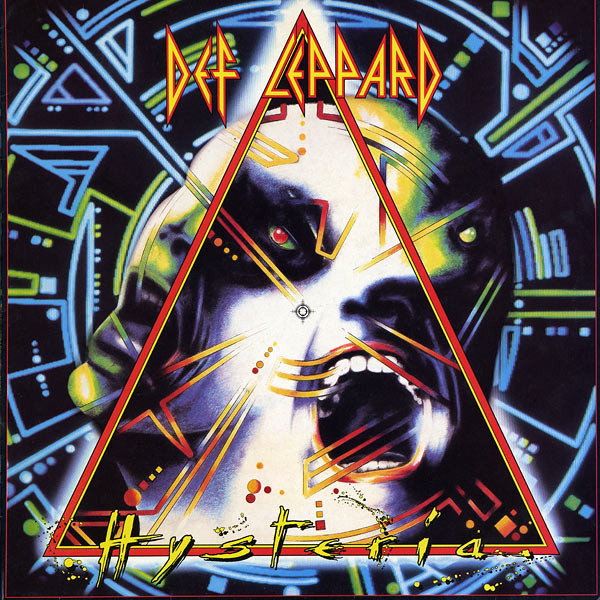The trials and tribulations on the road to releasing Hysteria have been well documented, and given the amount of work Def Leppard and producer Mutt Lange put into this album, it is perhaps no surprise that it sold in the eye-watering volumes that it did.
What is more of a surprise is how little credit Def Leppard receive for recording one of the biggest selling albums of all time, particularly here in the UK. In terms of global sales figures Hysteria is still one of the biggest albums in the history of pop music, yet here in the UK they are viewed as something of an anomaly on the list of acts that have clocked up the mega-sales down the years. With the music industry constantly looking to increase the sales of yesterday’s heroes, and ‘legacy acts’ regularly popping up on Later With Jools Holland, why are Def Leppard, and Hysteria in particular, so overlooked?
Listening to Hysteria 30 years after its release, it’s obvious why they were so warmly embraced by America. Having already perfected a style of chorus-heavy bombastic rock and having it polished to a lustrous finish by Lange, Def Leppard pretty much cornered pop-metal market in a way that none of their NWOBHM peers managed to. Unashamedly commercial, they squeezed every hit they could out of the album, toured until they dropped, and acquired their success the hard way. Certainly no one could criticise Leppard for a lack of effort when it came to touring. The American audiences in particular loved their well-presented stadium rock, and back in the late 80s, few could match Def Leppard when it came to putting on a glorious stadium-sized spectacle.
In regards to songwriting, they’d pretty much perfected their style on 1983’s Pyromania, and all they had to do on Hysteria was pen the hits that would sell the album. Which they did. Many times over. Of Hysteria’s 13 tracks, over half were hit singles, with “Animal”, “Pour Some Sugar on Me” and “Women” remaining prime slices of utterly accessible pop metal, and others remaining strong period pieces. Guitars howl, backing vocals are stacked, and Joe Elliott hollars throughout. It was an exercise in how to present a rock album that would sell by the lorry-load, and my word, it did.
If there is a criticism to be aimed at Hysteria beyond its overly generous run time, it’s that it has always sounded curiously thin on CD. While there have been deluxe expanded editions in recent years, the single CD that the newcomer would pick up in HMV is pretty much the same as the one originally stocked on its original release in 1987. If there is a mega-selling rock album due a sonic upgrade and an increase in oomph, it’s Hysteria, so it’s not before time that a newly remastered version hits the shelves this week. Perhaps the fact that their best known album has up to now sounded a little underpowered on CD is the reason that Def Leppard have been largely uncelebrated by the British Music Industry, but it seems highly unlikely. Instead, perhaps it is simply because the tastemakers just don’t want to embrace them. You see Def Leppard broke America and found acceptance in the UK on their own terms, and no one else’s. Outside of the hard rock press, they weren’t widely supported in the UK, particularly by those that considered themselves to know what was and wasn’t cool. Def Leppard became globally successful by their own sheer hard work and without a leg-up by the tastemakers.
It appears that 30 years later, many of those tastemakers and their modern equivalents still hold that grudge…














No Comment